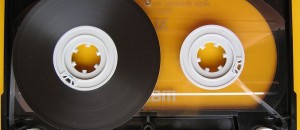The future is poop, no seriously; the future is literally poop if these scientists are allowed to continue their research. A bunch of researchers at Stanford University found a way to harvest electricity from feces, and we’re all for it. I mean, we poop almost every day, so why waste it down the toilet? Put that poop to good use is what we’re all about.
Okay, it isn’t exactly like researchers are plugging their smartphones into poop to recharge. Rather, researcher Xing Xie and his team of engineers came up with a microbial battery with the capabilities of generating electricity from sewage bacteria. More specifically, they are harvesting energy from “exoelectrogenic microbes”, a type of microbe that is found in “reservoirs of organic matter, such as wastewater” — which includes a large amount of poop.
These exoelectrogenic microbes generate electricity as organic material is consumed. The researchers assembled groups of these microbes around the negative knob of the battery, where they proceed to attach carbon filaments. Now, as the microbes munch on organic material like nobody’s business, additional electrons are placed onto the filaments and then spread across to the battery’s positive node, which is made of silver oxide.
In addition, the silver oxide converts itself into silver as more electron gather around, which stores potential energy as time goes by. The time it takes toe node to fill up and turn silver is around a day, at which point it is removed from the battery and re-oxidized.
Now, this isn’t the first time a team attempted to harvest electricity from these microbes, however; it could be the first time a team pulled it off with such efficiency. The battery is capable of harvesting about 30 percent of the energy stored in sewage, which is at the same rate compared to solar powered cells receiving energy from the Sun.
The main problem behind the idea of harvesting energy from sewage, is that as of now, it’s expensive, and there’s not that much energy in sewage anyway. Nonetheless, we’re putting our support behind this piece of technology, because we’ve always wanted to do something constructive with poop.
I think I said poop a bit too much in this article.
[via PNAS, image via Clean Technica]

 Email article
Email article




